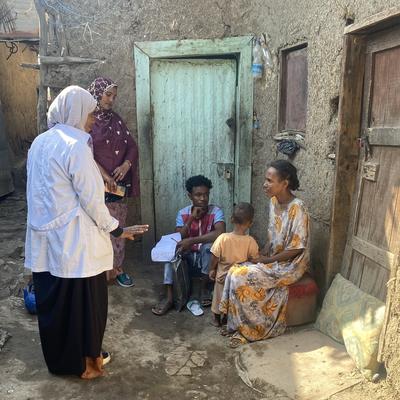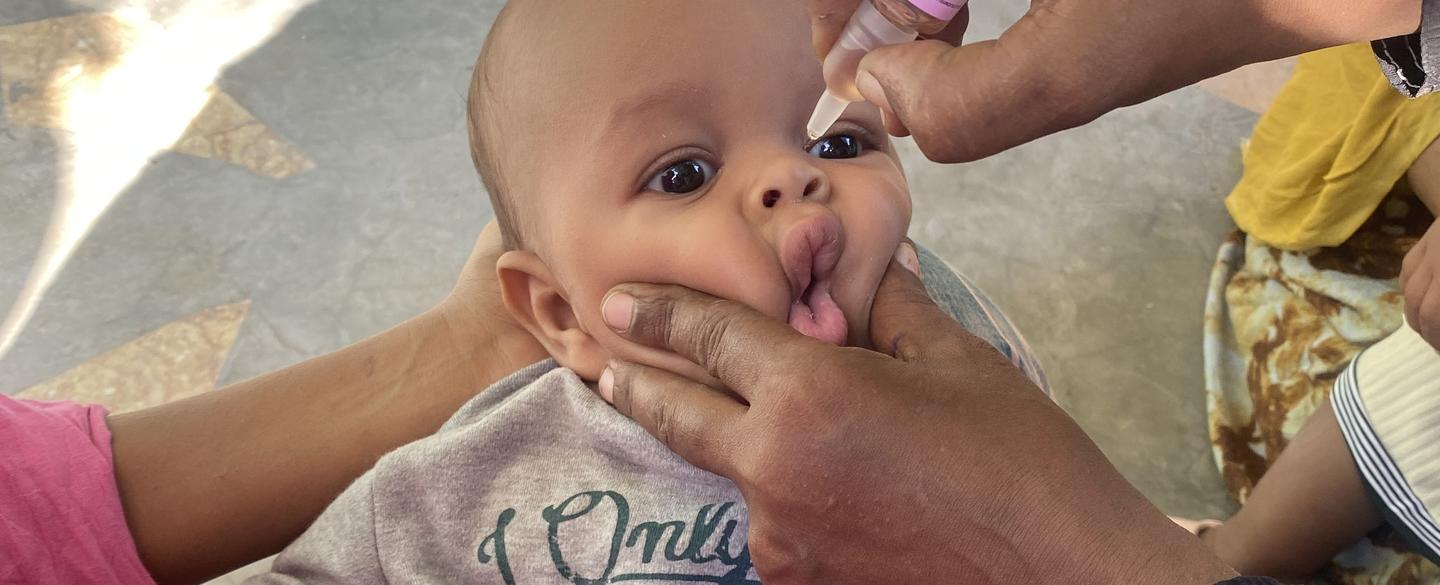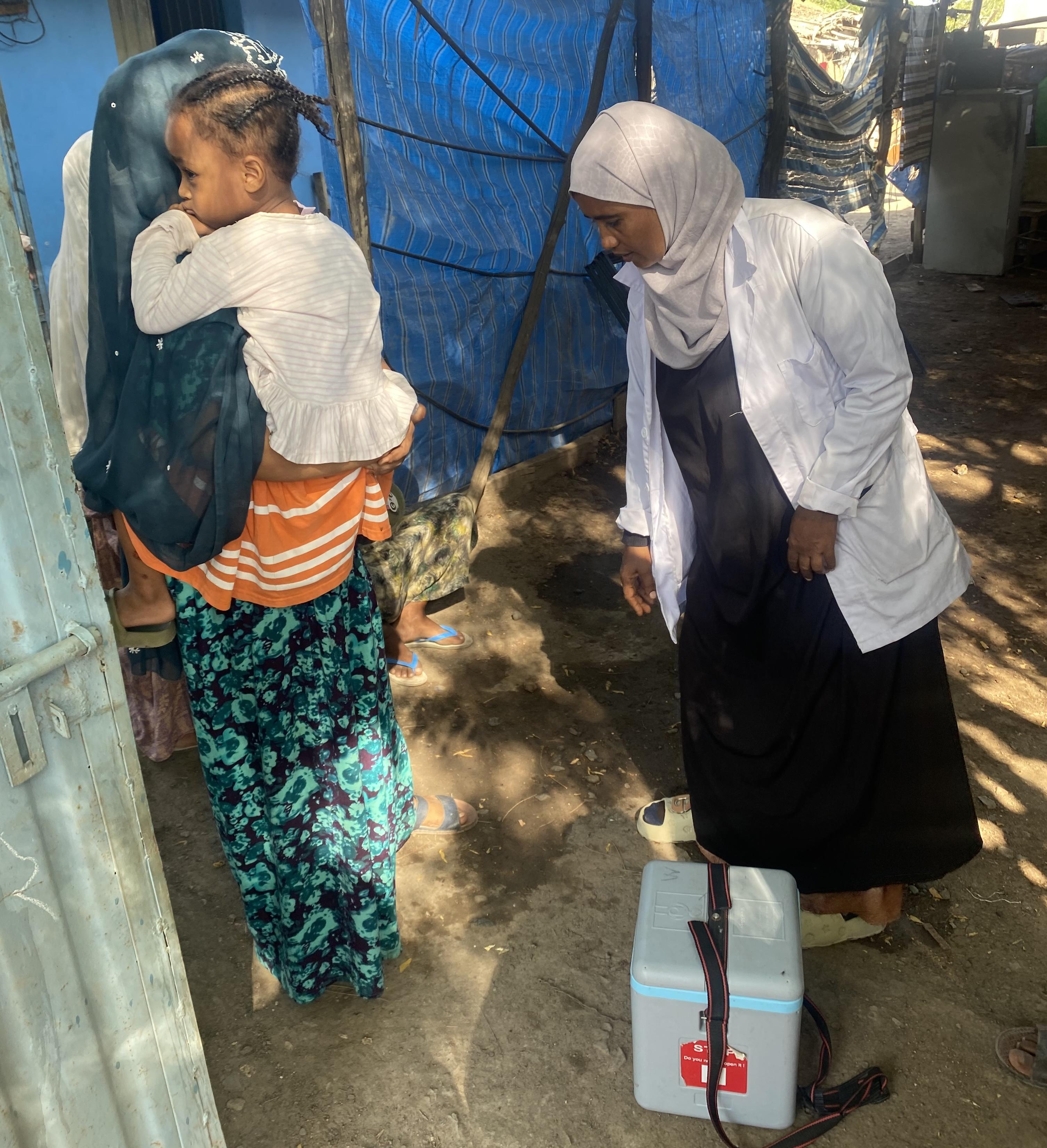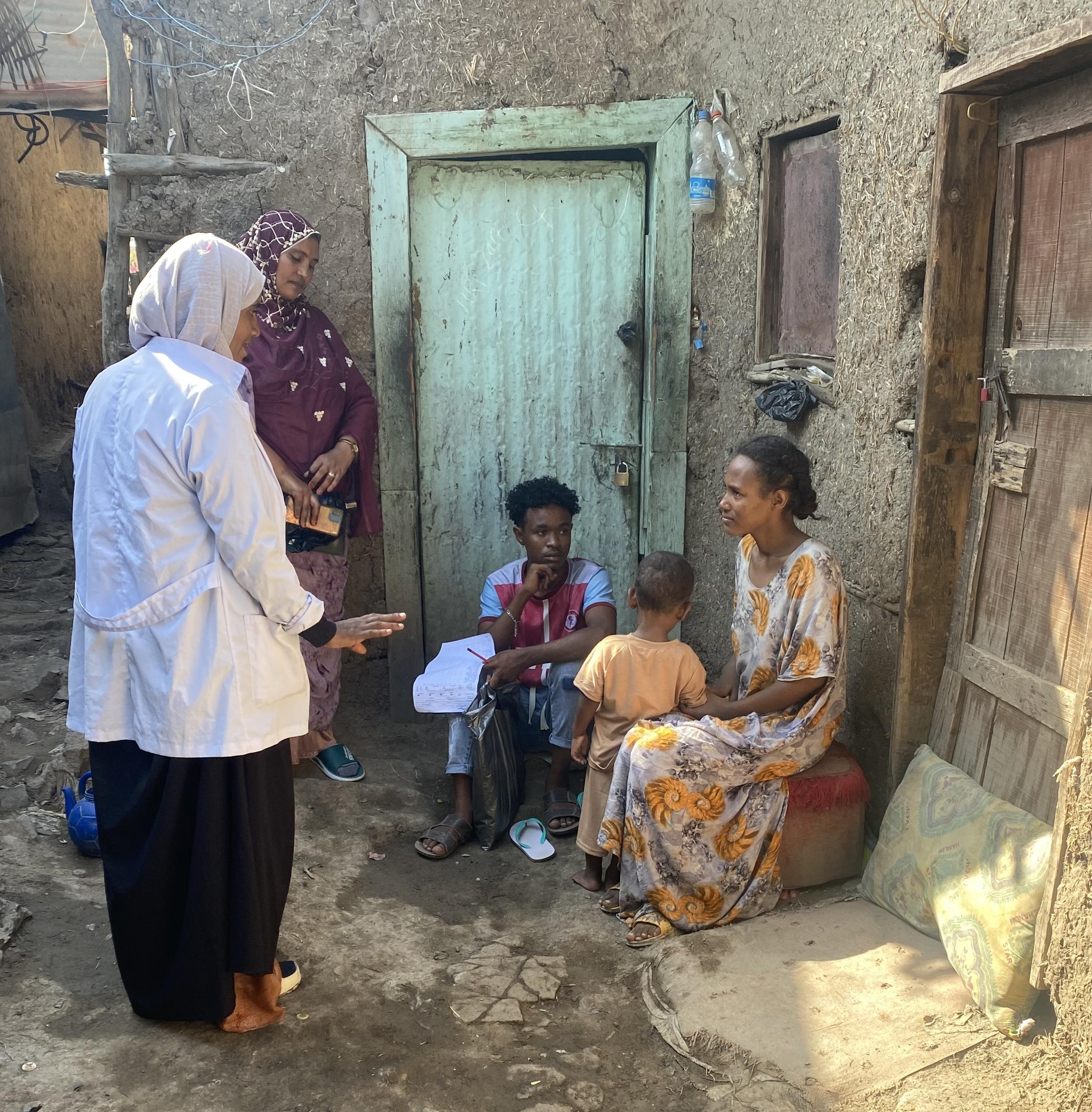
In Ethiopia’s Afar region, the Government’s Health Extension Program is vital to expanding access to essential health services, including immunization. At the forefront is Sister Mariyama Mohammed, a clinical nurse at Logia Health Center and urban health extension worker. She tirelessly conducts door-to-door visits, educating caregivers on the benefits of vaccines and ensuring no child is overlooked. With technical and financial support from UNICEF, 717 teams were deployed in two rounds of nOPV2 campaigns, achieving over 90% awareness. Through her dedication, Sister Mariyama embodies the impact of local health heroes in safeguarding children’s futures.
Background
Ethiopia’s Health Extension Program (HEP) has significantly improved its health outcomes by providing equitable access to health services. The HEP is a community-based strategy that delivers health promotion, disease prevention, and selected curative health services free of charge at the community level. HEP health packages fall into four major categories:
- Hygiene and environmental sanitation
- Prevention and control of major communicable diseases
- Family health services
- Health education and communication
A team of two Health Extension Workers (HEWs) deployed in a community health post serves a catchment population of 3,000–5,000 in a village or kebele. In addition to providing basic health services, HEWs represent the health sector in the local administration. *
* A Roadmap for Optimizing the Ethiopian Health Extension Program 2020-2035.” Addis Ababa, Ethiopia: Federal Ministry of Health of Ethiopia, 2020.

Photo: Sister Mariyama Mohammed administers an oral polio vaccine to an infant, ensuring protection against preventable diseases. As part of Ethiopia’s door-to-door immunization efforts, she plays a key role in reaching every child with life-saving vaccines.
To bolster the HEP, the Ethiopian Government introduced the Women’s Development Army (WDA) in 2011. WDA is a group organized by settlement or social proximity, participating in improving individual, family, and community health. WDA members are often part of “one-to-five” networks with one leader and five member households. These networks are grouped into women’s development teams comprised of 25 to 30 households, known as “one-to-30,” led by one team leader.
HEWs, supported by the Kebele administration, Children, Youth, and Women’s Affairs, and the Worda Health Office (WorHO), organize WDAs. Community-selected early adopters and volunteers with credibility were chosen as the leaders. HEWs train these leaders on key health issues using a Family Health Guide. The WDA team leaders then assist HEWs with:
- Promoting the uptake of key health services, disseminating essential health messages,
- Practicing key health actions,
- Generating demand for community health insurance,
- Collecting health information.
WDAs also play a crucial role in creating model kebeles, thereby enhancing overall health infrastructure and services at the community level.
Sister Mariyama Mohammed: A Tireless Advocate
Sister Mariyama Mohammed, a dedicated clinical nurse at the Logia Health Center, has been tirelessly championing immunization efforts in her community for over five years. As an urban health extension worker, she has passionately raised awareness about the importance of vaccines, educating caregivers on their benefits and providing detailed information on upcoming immunization schedules.
Mariyama had a profound impact during the first round of the nOPV2 vaccination campaign. She actively vaccinated children and conducted door-to-door visits to spread awareness about the significance of immunization. She emphasized that integrated vaccination campaigns are essential for strengthening routine immunization practices.
Mariyama's commitment goes beyond mere duties. She expressed immense satisfaction with knowing that children were receiving vaccinations on schedule, protecting them from various diseases. She dedicated herself to encouraging and training caregivers and the broader community, ensuring that every child received timely vaccinations.

Photo: With a cold box of vaccines, Sister Mariyama Mohammed prepares to immunize a young child held by her mother. Her dedication ensures that Ethiopia’s health extension program reaches families directly, protecting children from preventable diseases.

Photo: Sister Mariyama Mohammed speaks with a mother and her family outside their home, raising awareness about immunization. Through these door-to-door visits, she educates caregivers and encourages vaccine uptake in underserved communities.
Through her relentless efforts, Sister Mariyama became a beacon of hope and a symbol of unwavering dedication to public health in her community.
UNICEF has provided both financial and technical support to the Afar Public Health Institute, particularly in efforts to increase the community demand for integrated nOPV2 vaccination campaigns in all districts of the region. The total 717 number of teams were deployed during two rounds of nOPV2 outbreak response campaigns respectively. In each team one trained community mobilizer were deployed to mobilize care givers for vaccination during house-to-house vaccination campaign. Caregivers were informed in advance to be ready to vaccinate their under-five year children. These trained individuals actively participated in two rounds of the integrated nOPV2 vaccination campaign, playing a crucial role in mobilizing the community and ensuring the success of vaccination efforts. During supportive supervision visit team found that records like vaccinated child, missed child and other details were up to date in tally sheet in sister Mariyama’s team.
Their involvement contributed significantly to raising awareness and promoting the importance of immunization within the community. According to the independent monitoring data, the awareness recorded during first and second round was 90% and 92% respectively.
Ethiopia’s door-to-door immunization efforts exemplify the critical role that dedicated health workers like Sister Mariyama Mohammed play in protecting children from preventable diseases. Through their tireless work, they bridge the gap between communities and essential health services, ensuring that every child—no matter how remote—receives life-saving vaccines. With the support of UNICEF, initiatives like Ethiopia’s Health Extension Program continue to strengthen immunization systems, build caregiver trust, and sustain progress toward polio eradication. As the world moves closer to ending polio for good, the dedication of frontline health workers remains at the heart of achieving a future where every child is safe from this disease.
Written by Biniyam Worku and Dr. Chaudhary Mohd Parvez Alam

